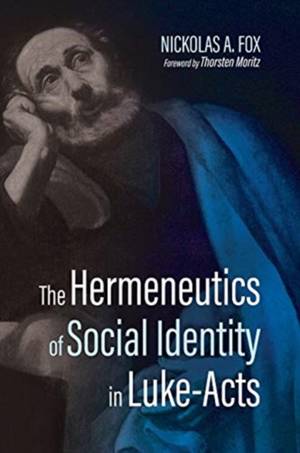
- Afhalen na 1 uur in een winkel met voorraad
- Gratis thuislevering in België vanaf € 30
- Ruim aanbod met 7 miljoen producten
- Afhalen na 1 uur in een winkel met voorraad
- Gratis thuislevering in België vanaf € 30
- Ruim aanbod met 7 miljoen producten
€ 81,45
+ 162 punten
Uitvoering
Omschrijving
Luke-Acts presents a vision of the kingdom of God and the early church in a program of decentralization, that is, a movement away from the centralized power structures of Judaism. Decentralization of the temple, land, purity laws, and even the people that seem to possess the power early in Acts (i.e., Peter and the other apostles) makes room for a move of radical inclusion. Luke demonstrates the Holy Spirit as the prime initiator of outward expansion of the kingdom of God, radically including and welcoming God-fearers, gentiles, an Ethiopian eunuch, and more. Fox argues that Luke-Acts is purposed to create social identity in God-fearing readers using the rhetorical tools of the first century to communicate prescribed beliefs and norms, promise and fulfillment, and prototypes and exemplars. Each of these elements is examined and traced through Luke's two-volume work.
Specificaties
Betrokkenen
- Auteur(s):
- Uitgeverij:
Inhoud
- Aantal bladzijden:
- 310
- Taal:
- Engels
Eigenschappen
- Productcode (EAN):
- 9781725278646
- Verschijningsdatum:
- 15/03/2021
- Uitvoering:
- Hardcover
- Formaat:
- Genaaid
- Afmetingen:
- 178 mm x 254 mm
- Gewicht:
- 752 g

Alleen bij Standaard Boekhandel
+ 162 punten op je klantenkaart van Standaard Boekhandel
Beoordelingen
We publiceren alleen reviews die voldoen aan de voorwaarden voor reviews. Bekijk onze voorwaarden voor reviews.










